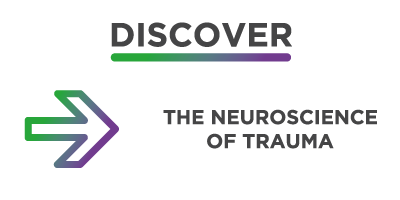Stress is our body’s way of responding to any kind of demand or threat. When we sense danger, whether real or imagined, our body’s defences start a rapid, automatic process, known as “fight-or-flight” or the “stress response”.
Homeostasis describes our body’s tendency to auto-regulate and maintain our internal environment in a stable state: our brains have evolved to seek homeostasis. A stressor is anything that knocks us out of homeostatic balance. The stress response is what our bodies do to re-establish homeostasis and can be activated not only in response to physical or psychological threats but also by just thinking about them. Allostasis describes our body’s process of maintaining homeostasis through the adaptive change of our internal environment to meet perceived and anticipated demands: our brains coordinating body-wide changes, often including behavioural changes.
The core of the stress response is the fact that our muscles are going to work intensely. During stress our digestion is inhibited, growth and tissue repair are curtailed, sex drive decreases, our perception of pain can become blunted, shifts occur in cognitive and sensory skills, certain aspects of memory improve, and our senses become sharper. All this allows energy to be mobilised and delivered to the tissues that need it to allow us to fight or run away. Unfortunately, with prolonged stress, the stress response can become more damaging than the stressor itself, especially when the stress is purely psychological. Stress increases your risk of getting diseases that make you ill, and if you have a disease, stress increases the risk of your defences being overwhelmed by it.
Stressors come in many different forms, often having both physical and psychological elements, and we’re susceptible to them even before birth: if our mother was malnourished, bereaved, injured, abused, or otherwise severely stressed whilst pregnant with us, we may be borne out of homeostatic balance. As babies, if we’re repeatedly separated from our mother or primary caregiver, or if they’re too distracted or stressed to love, touch and cuddle us, these situations also act as significant stressors. Growing up with social discrimination, marginalisation, adversity, even moving to a new school, can generate a chronic experience of being an outsider which is a major stressor, as are physical and sexual abuse. Adolescence brings all kinds of new stressors: peer pressure, bullying, learning difficulties, exams, sexuality, gender issues. And once we make it to adulthood we are faced with rent or mortgage payments, work, relationships, bereavement and on, and on. Life can be stressful!
WHAT IS TRAUMA?
Trauma is a severe form of stressor. Physical trauma (damage to the body) refers to severe physical injury caused by an external source. Psychological trauma (damage to the psyche) occurs because of a severely distressing event or situation. The two are often interconnected. Whether we are a little stressed, very stressed, were traumatised in the womb, as a baby, in early childhood, or by a one-off event in adulthood, what’s going on in our bodies is a result, either directly or indirectly, of our stress response.
As human beings we are extremely resilient: we rebound from wars, disasters, violence and betrayal. But traumatic experiences leave scars on our histories, families, minds, emotions, immune systems, and on our capacity for joy and intimacy. Trauma affects not only those who are directly exposed to it but also those around them and can be unbearable. Most trauma survivors become so upset when they think about what happened that they try to push it out of their minds as if nothing happened. But it takes huge energy to keep functioning while carrying the memory of terror, weakness and vulnerability. The part of our brains that is devoted to ensuring our survival is not very good at denial. Long after a traumatic experience is over, it may be re-experienced and trigger disturbed brain circuits to secrete massive amounts of stress hormones. This can lead to unpleasant emotions, intense physical sensations, and impulsive or aggressive actions. These reactions can feel confusing and overwhelming.
Three new branches of science have led to an explosion of knowledge about the effects of psychological trauma, abuse, and neglect: neuroscience, the study of how the brain supports mental processes; developmental psychopathology, the study of the impact of adverse experiences on the development of the brain; and interpersonal neurobiology, the study of how our behaviour influences our emotions, biology, and those around us. Research from these new disciplines has revealed that trauma produces physiological changes which explain why traumatised people become hypervigilant to threat at the expense of engaging in their day-to-day lives. Their behaviours are not the result of moral failings, lack of willpower or bad character, they are caused by changes in their brains and bodies.
I’m interested in methods and techniques that utilise the brain’s own natural neuroplasticity (the ability of our brains to change throughout our lives) to help survivors feel fully alive in the present and move on with their lives. Whether trauma is the result of something done to you or something you have done, it almost always makes it difficult to engage in intimate relationships. After you have experienced something unspeakable, it’s hard to learn to trust yourself or anyone else. One of the hardest things for traumatised people is to confront their shame about the way they behaved during a traumatic episode. It can be hard enough to face the suffering that has been inflicted by others, but deep down many traumatised people are more haunted by the shame they feel about what they themselves did or did not do. They despise themselves for how terrified, dependent, excited, or enraged they felt. The result can be confusion about whether they were a victim or a willing participant, which in turn leads to bewilderment about the difference between love and terror, pain and pleasure.
Trauma changes our perceptions and imagination; imagination is critical to the quality of our lives. Our imagination enables us to leave our routine everyday existence by fantasising about travel, food, sex, falling in love, or having the last word: the things that make life interesting. It gives us the opportunity to see new possibilities, fires our creativity, relieves our boredom, alleviates our pain, enhances our pleasure, and enriches our relationships. When we are constantly pulled back into the past, we suffer from a failure of imagination: no hope, no chance of a better future, no goal to reach.
Trauma is not just an event that took place sometime in the past, it’s also the imprint left by that experience on the whole self, and this imprint has ongoing consequences for how the survivor manages in the present. It changes not only how we think and what we think about, but also our capacity to think. Most human suffering is related to love and loss and my job is to help people acknowledge, experience, and bear the reality of life, with all its pleasures and heartbreak. Healing depends on experiential knowledge: we can only be fully in charge of our lives if we can acknowledge the reality of our bodies and all our deep inward feelings.
Attractors, the things that draw us, motivate us and make us feel alive, normally make us feel better. So, why are some people attracted to dangerous or painful situations? Activities that cause fear or pain can later become thrilling experiences. This gradual adjustment signals that a new chemical balance has been established within the body, so that marathon runners, say, get a sense of well-being and exhilaration from pushing their bodies to the limit. At this point, just as with drug addiction, we start to crave the activity and experience withdrawal when it’s not available. Strong emotions can block pain because of the release of morphine-like substances manufactured in the brain. For many traumatised people, re-exposure to stress might provide a similar relief from anxiety.
Trauma is preverbal. Years after an event traumatised people can have enormous difficulty telling others what happened to them. Their bodies reexperience terror, rage, and helplessness, as well as the impulse to fight or run away, but these feelings are almost impossible to articulate. Trauma by nature drives us to the edge of comprehension, cutting us off from language. This doesn’t mean that people can’t talk about a tragedy, but it is very difficult to organise traumatic experiences into a coherent account, with a beginning, middle, and end. When words fail, haunting images capture the experience and can return as nightmares and flashbacks. Other unprocessed sense fragments of trauma, like sounds, smells and physical sensations, are also registered separately from the story itself. Similar sensations often trigger a frightening flashback that brings them back into consciousness, as if they were occurring in the present.
I offer a free initial telephone conversation, giving you as much time and space as you need to consider whether you’d like to come and meet me.






